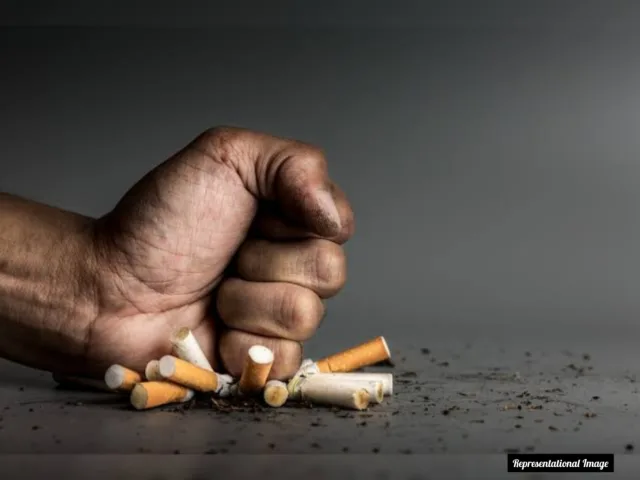As the world observes World TB Day on March 24th, India stands at the forefront of the fight against tuberculosis, a persistent public health challenge in the country. Despite significant progress in recent years, tuberculosis remains a formidable public health challenge in India. According to the World Health Organization (WHO), India continues to bear the highest burden of TB cases globally, with an estimated 2.64 million new cases reported in 2023 alone. Tuberculosis (TB) remains a grave concern for global health, placing immense pressure on public health systems worldwide; states a press release.
Recent data indicate that annually, more than 10.6 million individuals contract TB globally, resulting in an estimated 1.30 million deaths in 2022 alone. India shoulders a substantial portion of this burden, contributing to approximately 27% of global cases, which translates to roughly 24.2 lakh cases and 3.31 lakh deaths in 2022. With an annual incidence rate of 133 new cases per 100,000 people, urgent action is imperative. The number of TB-related deaths in India significantly exceeds those caused by malaria, HIV AIDS, etc., underscoring the severity of the situation.
With a vision to eliminate TB by 2025, Prime Minister Narendra Modi has outlined a comprehensive strategy to address this pressing issue. The Prime Minister’s ambitious vision to eliminate TB by 2025 demonstrates the Government’s commitment to addressing this issue comprehensively. Through initiatives such as the National Tuberculosis Elimination Program (NTEP) and the TB Free India campaign, India is working tirelessly to accelerate progress towards achieving this goal.
Tuberculosis, primarily caused by Mycobacterium tuberculosis, poses a complex challenge in India, where roughly a quarter of the population is infected and at risk of developing the disease. Recent research has shed light on a correlation between tobacco consumption and TB, illustrating how smoking significantly increases the risk of contracting, developing, and dying of TB.
“Studies indicate that individuals who smoke tobacco are 2.5 times more likely to develop pulmonary tuberculosis compared to non-smokers, while TB patients who smoke face double the risk of death during treatment. As smoking not only heightens susceptibility to TB but also undermines treatment effectiveness and increases the likelihood of relapse, it adds to the burdens faced by patients and healthcare systems alike,” said Dr.Shekhar Salkar, renowned Oncologist & President NOTE, Goa.
“Additionally, the widespread prevalence of tobacco use, with an estimated 10% of India’s populace being tobacco users, further complicates efforts to combat TB in India. By quitting smoking, individuals can protect themselves and their communities from the devastating impact of TB”.
One significant factor exacerbating the TB burden in India is the connection between tuberculosis and tobacco use. According to the Global Adult Tobacco Survey in India, a staggering number of individuals are tobacco users. Studies have shown that India has the second largest number of tobacco users (268 million or 28.6% of all adults in India) in the world – of these at least 1.2 million die every year from tobacco related diseases. Nearly 50% of all cancers in India are due to tobacco usage. The total direct and indirect cost of diseases attributable to tobacco use was a staggering Rupees 182,000 crore which is nearly 1.8% of India’s GDP.
“Government initiated and outlined a strategy by setting a goal to achieve TB free India by 2025. To achieve this target, there is an urgent need to strengthen tobacco control laws and increase taxation on tobacco products as there is correlation between TB and Tobacco consumption. By implementing stringent tobacco control measures, including bans on smoking in public places and advertising restrictions, India can mitigate the impact of tobacco use on TB incidence and mortality rates. Coordinated efforts are essential to combat tobacco use and mitigate its adverse impact on TB” says Ashim Sanyal, CEO, Consumer VOICE Delhi.
Tobacco smokers are at a higher risk of developing TB and experiencing more severe forms of the disease. Additionally, exposure to second-hand smoke can worsen TB outcomes and hinder treatment effectiveness.
Despite commendable initiatives by the Government of India, such as the Cigarettes and Other Tobacco Products Act (COTPA) and the National Tobacco Control Program (NTCP), stronger enforcement and evidence-based interventions are imperative to effectively curb tobacco consumption. Moreover, there is a growing consensus on the importance of collaboration between health sectors to efficiently address the tobacco-TB connection, utilizing existing TB infrastructure to deliver cessation interventions effectively. World TB Day is an opportunity to renew commitment, inspire and take action to end TB.






